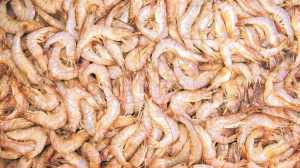Customs duty on edible oils slashed to check inflation
With inflation hitting a two-year high, the government has decided to cut customs duty on edible oils by up to 12.5 per cent and freeze the tariff values at the July 2006 levels.

With inflation hitting a two-year high, the government has decided to cut customs duty on edible oils by up to 12.5 per cent and freeze the tariff values at the July 2006 levels. “This has been done as part of the strategy to keep the prices of essential commodities under check,” an official statement said.
This follows yesterday’s decision to ban futures trading in urad and tur — two narrow commodities where the volume of trade in the futures market is several times more than the production. The NCDEX issued orders delisting these commodities within hours of a meeting between Finance Minister P. Chidambaram and Minister for Agriculture, Food and Consumer Affairs Sharad Pawar.
In the meeting, Pawar’s ministry submitted figures on impact on prices with different duty structures. “The main concern was availability, prices and the loss of revenue…in that order,’’ said T Nandakumar, Secretary, Food.
According to the Ministry of Agriculture, the wheat and sugar prices have been under control in the last few months. More than 45 lakh tonnes of imported wheat is already in the Indian markets. Sugar was opened for exports after a bumper crop this year.
The stress is now on pulses and edible oils. Both these commodities have seen a price increase of 20-30% over the last one year. India is the world’s third biggest importer of vegetable oils.
The ministry earlier held consultations with representatives of the palm oil industry to discuss a cut in import duties and the possible impact on domestic prices of oils. Palm oil constitutes more than 50 per cent of India’s total annual edible imports of over 5 million tonnes. Industry representatives are not in favour of a duty cut as international prices fall as soon as India announces a duty cut, defeating the whole purpose.
The country normally imports 50 lakh tonnes of edible oils each year, which is 50% of the total consumption. Palm oil and soya form the largest chunk of imports.
In August, the government had cut import duties on crude palm oil and palmolein shipments to 70 per cent from 80 per cent. In December, the cuts were extended indefinitely.
In today’s order, the duty on refined bleached and deoderised palm oil, palmolein and other refined palm oils have come down to 67.5 per cent from 80 per cent. Duty on crude palm oil and palmolein has been cut to 60 per cent from 70 per cent, on crude sunflower oil to 65 per cent from 75 per cent and on refined sunflower oil to 75 per cent from 85 per cent.
The oilseed market is looking up with falling crude prices. A large part of oilseed production was being diverted to biofuels, creating a shortage of edible oils in the market. Fresh crop of mustard will start arriving in the domestic market by February.





- 01
- 02
- 03
- 04
- 05


























